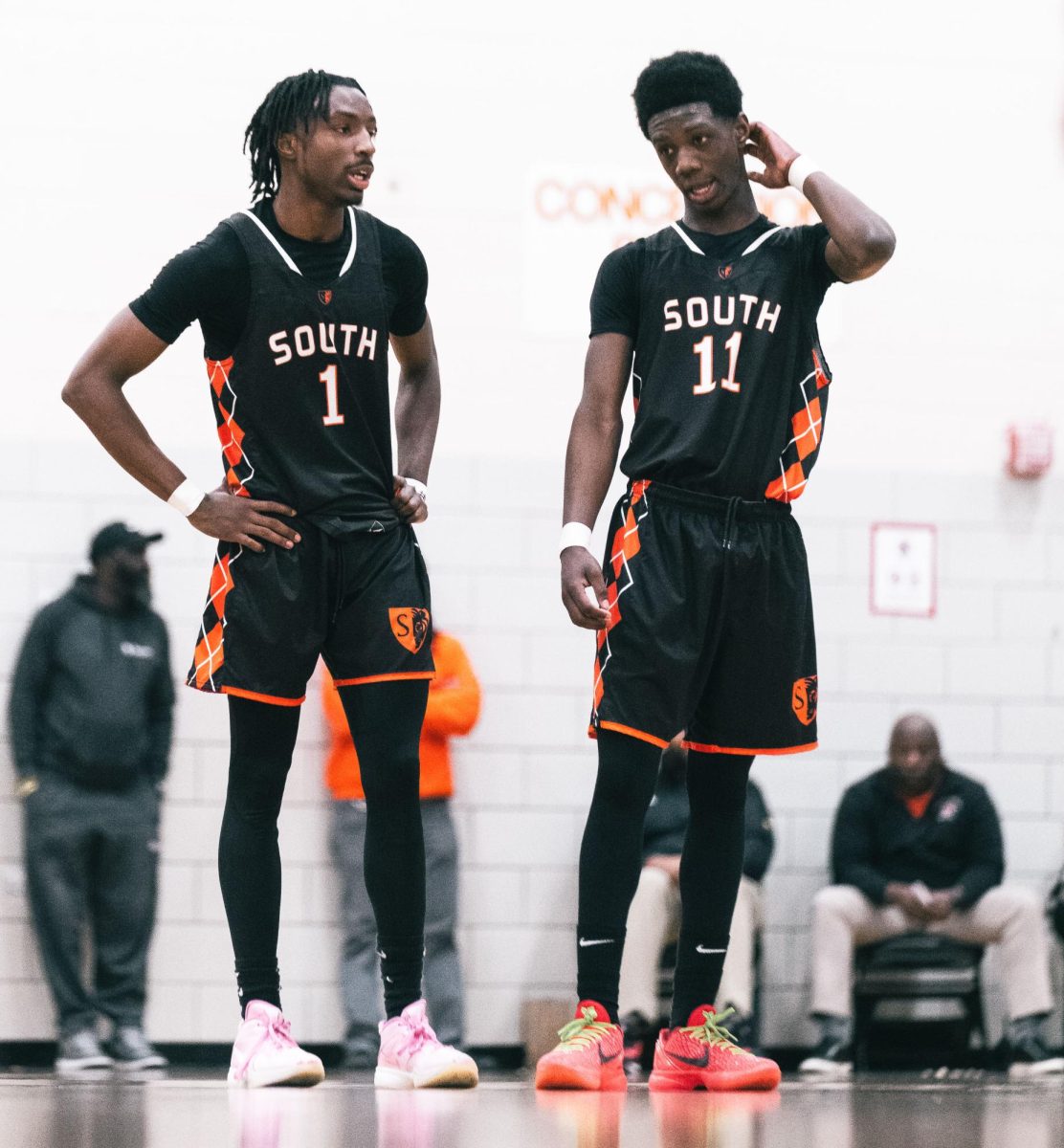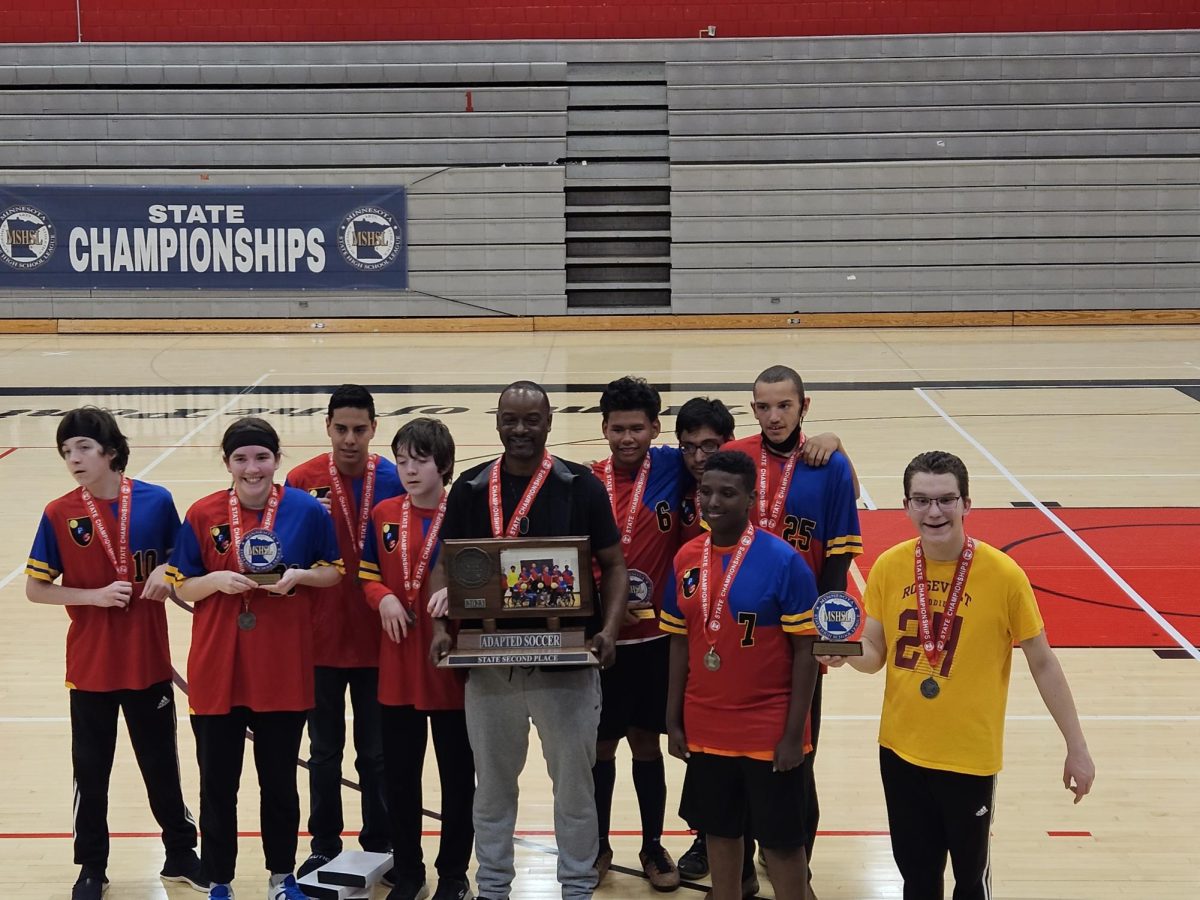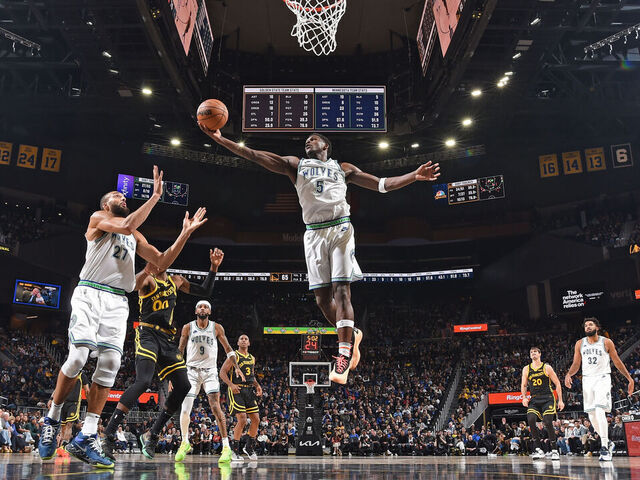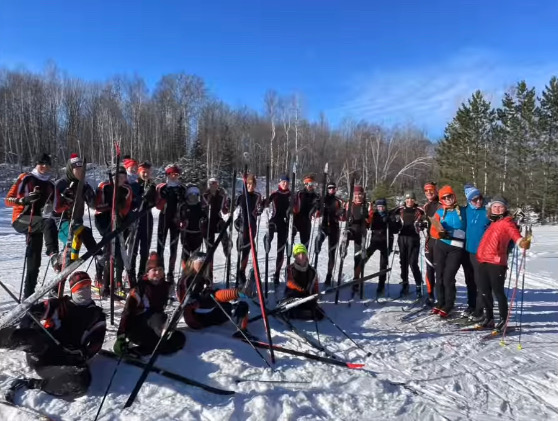Teams huddle on the side of the field, heads together, all equally worried about the outcome of each game. Words of encouragement are exchanged as the crowd waits anxiously for every start. Every game is nerve- wracking, every win is needed and every loss is dreaded. For some athletes, though, these games might mean more than just a win or a loss. Their performances, if in front of the right people, could affect whether or not they are offered a scholarship to the school of their dreams.
For most student athletes, the recruitment and scholarship process begins to take action during their junior or senior year, but depending on the skill of the athlete coaches may begin contacting students as early as their freshman year. According to South High Athletic Director Mark Sanders, “the recruiting process gets pretty crazy; coaches are calling students all the time, they’re calling me, and they’re calling the coach.”
“I’ve had coaches come up to me at tournaments,”said junior volleyball player Ellen Sachs, who has now had the opportunity to meet with coaches from the schools of St. Catherine’s and Gustavus Adolphus.
Though these scholarships are created purely for students with high athletic success, academics can often be one thing that keeps offers away.
“Academics have got to come first. You generally have to meet a minimum ACT score and you have to have pretty good grades,” said Sanders, “if you don’t meet those, then they’re not even going to want you to be on the team unless you’re a super superstar.”
Even amazing athletes can’t get by purely on skill. The only difference is, colleges will work with “super superstars” so as to get their grades up by sending them to prep schools or sometimes, even making exceptions. These are rare occasions, and for most student athletes, these exceptions are not a reality.
South has had a great deal of talented athletes that went on to play college sports, including Tayler Hill who plays basketball for Ohio State, and Hassan Mead who ran cross country for the University of Minnesota. Both Hill and Mead were named All-Americans in their sport.
Regardless of South’s history with successful student athletes, Sanders continued, “there are very few Division I athletes that come out of one school, especially in one state, let alone one high school.”
In order for a student to be eligible to play an NCAA Division I or II (DI or DII) collegiate sport, they must first register with the NCAA Initial-Eligibility Clearinghouse. “Many times what the NCAA requires as a core class wouldn’t meet the requirement that the NCAA has so we have had to make sure they’re taking the correct courses,” said Sanders. Due to requirement incidents in the past, Sanders stressed the importance of working with the counseling staff to make sure “there are no snags in the process.”
Some seniors have even had to drop out of V.O.I.C.E.S., a popular class that combines social studies and English and frequently has a waiting list of students who wish to enroll, as it is not accepted by the NCAA as a core class.
Regardless of sports scholarships, senior Carnell Sheppard is going to college. His success on the basketball court is obvious, having scored 432 points last season. But for Sheppard, basketball is not his long-term future.
“I don’t really want to play basketball after college,” said Sheppard, “I wouldn’t stop, I’ll still play for fun but I wouldn’t try to pursue it professionally. I just don’t feel like I’d want to play basketball for the rest of my life.”
Sheppard’s main reason for this is that he wants to focus on his education, as realistically, he feels education will get him a better paying job than basketball will. And money is a big deal for him.
“I’d rather do something that I would enjoy getting money off of, and I feel like basketball wouldn’t get as much money,” explained Sheppard, “I’m not going to go pro, but I’m not going to go overseas because that doesn’t pay as well. I want to do something that makes a lot of money.”
Sheppard has already received an offer from a DI school in Wyoming and is hoping to get more before the season is over.
“Honestly, I think basketball is my way to get to college,” said Sheppard, “its just a free way to college.”
Senior Jovan Carter, on the other hand, is planning his immediate future on soccer. Carter recently returned from Florida where he was participating in a showcase on college soccer.
“I’m planning on playing Division I soccer,” said Carter.
Carter is so dedicated to playing soccer, he may put off college for a year in order to play soccer in Brazil. Carter would use that year to improve his skills and grow as a player, but would be risking his education in doing so. “It would definitely hurt my education,” he said.
Carter currently takes part time PSEO as well as classes at South, and has found his commitment to athletics hard to juggle with school.
“If I was in full time PSEO it wouldn’t be possible [to play soccer],” said Carter, “I’d be really worried that I wouldn’t be able to handle education and sports [in college].”
For Carter, education seems to take a backseat to his soccer career, and if he gets his way, that wouldn’t change in the future. “If the opportunity presents itself to go pro, I would,” said Carter.
Regardless of the desire to go pro, a college athletic career can offer a lot to an athlete.
“Many athletic careers end at the high school level but those that are good enough or have a desire to get to the next level can continue to compete,” said Sanders “you learn all those life lessons that you learn through high school [sports] but it’s intensified because it’s different and more intense at the college level.”
For successful athletes, sports scholarships are the perfect transition into a college athletics career that could lead into a profession. However, scholarships for athletics are scarce and in reality, very few athletes get substantial financial support, which is why counselor Don Dilla encourages even the best of athletes to “always have a back-up plan.”






![Senior Ingrid Noren heads to school in February. She recommends winter biking, saying that “it’s better for your health [and] better for the planet.”](https://www.shsoutherner.net/wp-content/uploads/2023/03/Winter-biking-900x675.jpg)
